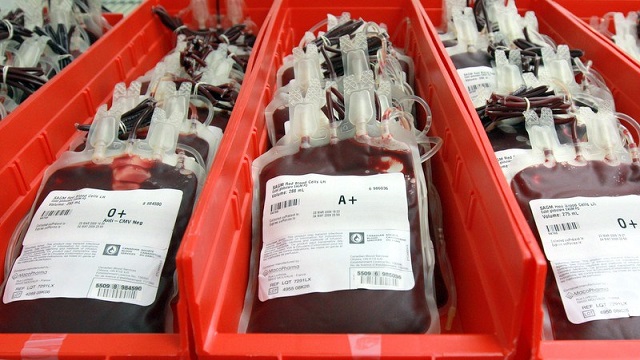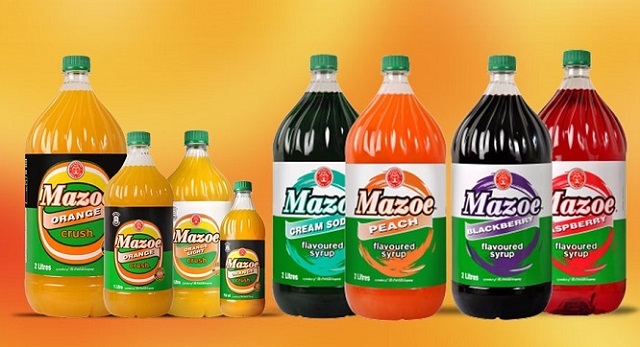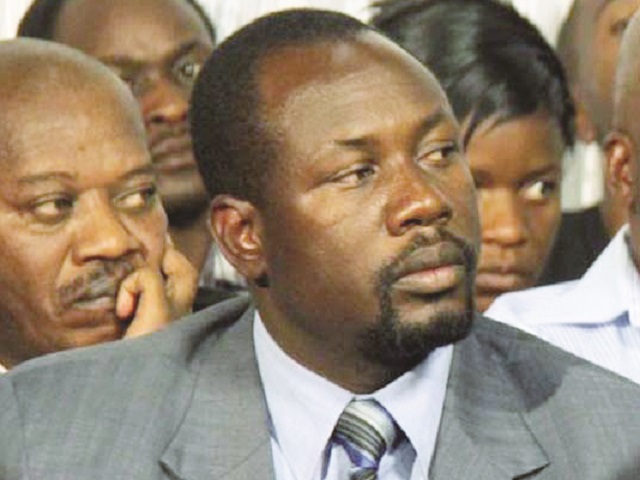100 blood donations each, 100 lives touched

Andile Tshuma, Features Correspondent
Mr Zulu Moyo and Mr Miller Satambwe, both in their late 50s say they find joy and satisfaction in the fact that they have touched over a 100 lives each by donating their blood.
They are blood donors who have been giving blood for a number of years.
Mr Moyo who stays in Ntabazinduna said a traffic accident he witnessed in 1992 pushed him to be a blood donor.
“I witnessed a horrific accident in 1992 and heard that those people needed a lot of blood but hospitals were running out as not many people were giving blood. I took it upon myself to donate blood as I felt obliged to help people. Since then, I’ve been giving blood every three months and to date, I’ve donated over 100 units,” said Mr Moyo.
He said helping people in need of blood made him feel connected with the community.
“I know I may never meet any of the 100 people that I’ve assisted with my blood but knowing that another person got a second shot at life because of my blood makes me feel that I’m contributing to the welfare of Zimbabweans,” he said.
Mr Moyo said his wife had since joined him as a blood donor.
He said his wife’s brother was involved in an accident last year and was able to receive free blood because his wife is a blood donor.
“Being a blood donor is being a life giver. I may not have many material things to give to other people but I feel happy that I’m extending a lifeline to tens of people I may never meet in life. I used to work outside the country so I sometimes faced challenges in giving my timely donations but I would make it a point to ask for off days in order to travel home and donate blood for my brothers and sisters in need,” said Mr Moyo.
He said he travels to the city to donate blood when he is due, even when he has no other business in town as he now spends most of his time in the rural areas.
Mr Satambwe from Nketa 8 suburb, said he started donating blood in 1980 when the National Blood Service of Zimbabwe (NBSZ) visited the factory where he was working.
He said he was moved by a public lecture on the need for blood in hospitals after accidents at work, on the roads, after surgery and other such circumstances.
“I was inspired to give blood by NBSZ people who came to Monarch Steel where I used to work and explained the importance of donating blood. I was like many blacks reluctant to donate blood but following the visit I changed,” said Mr Satambwe.
He said the realisation that he could one day be injured at work or in an accident, fall sick and needed blood made him change his mind and started giving blood.
Both men said at first they were criticised by family members and friends who did not understand why they subscribed to a culture of donating blood.
They said with time some of their critics came back to them after benefiting from donated blood following injuries in accidents or falling sick.
During this year’s World Blood Donor Day commemorations held recently, NBSZ honoured donors who had given blood 25 times or more in categories of 25, 50, 75 and 100 time donors.
Mr Moyo and Mr Satambwe each got the best awards in the centurion donors’ category.
Speaking at the commemorations in Bulawayo, the guest of honour, Mpilo Central Hospital chief executive officer Mr Leonard Mabandi said effective blood donation campaigns had helped in the improvement of blood stocks this year as NBSZ had realised a 30 percent increase in blood donations in the first half of 2018.
“NBSZ in collaboration with the Ministry (of Health and Child Care) has the responsibility to coordinate the Zimbabwe campaign and ensure it’s in line with the set theme for 2018 which is “Blood donation as an act of solidarity”. The NBSZ and the community of Bulawayo, Matabeleland North and South provinces would like to express our gratitude to all blood donors today by saying we value the altruism, respect, empathy and kindness you show voluntarily without payment in order to save the lives of others. Siyabonga,” said Mr Mabandi.
He said NBSZ Bulawayo branch had noted an increase in demand for blood by hospitals and the need to increase collections to enable demand for blood products to be met consistently.
“Adults, particularly the youth, are urged to continue donating in order to meet the rising demand for blood as Zimbabwe strives to improve its health delivery system to meet the World Health Organisation Sustainable Development Goals on health,” said Mr Mabandi.
NBSZ brand ambassador and sports journalist Mehluli Sibanda, who has donated blood over 80 times, urged media colleagues to join in donating blood on regular basis.
“I started this journey as a high school kid and back then it was just for the freebies. Right now I know that I’m extending a lifeline to another person with each pint of blood I give. I challenge my friends in the media and everyone else to give blood as I feel that it’s one gift we can share as humans,” said Sibanda.
Seventy percent of blood donations come from high school pupils who are the most active blood donors
World Blood Donor Day is observed by countries across the globe on June 14. The commemorations are meant to create awareness on the need for safe blood and blood products for transfusion and to acknowledge blood donors for voluntarily giving blood.
According to WHO, transfusion of blood and blood products helps save millions of lives every year. It can help patients suffering from life-threatening conditions live longer and supports complex medical and surgical procedures. It also has an essential life-saving role in maternal and child care as well as during disasters.
A blood service that gives patients access to safe blood and blood products in sufficient quantities is a key component of an effective health system. An adequate supply can only be ensured through regular donations by voluntary donors.
Blood services in many countries however face the challenge of making sufficient blood available while also ensuring its quality and safety. Zimbabwe is one of the African countries where there are active blood donors but the challenge is that at times NBSZ’s blood stocks cannot meet demand.










Comments